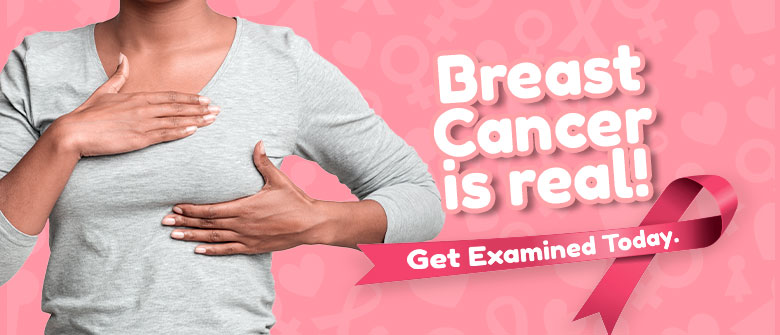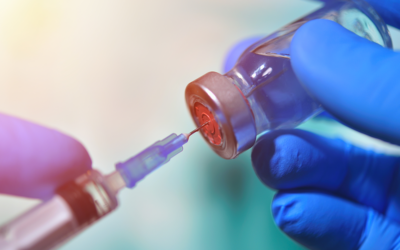In Nigeria, Breast cancer is one of the most common causes of death and also the most common cancer that affects women. Journal of Clinical Sciences (2019)
Women at risk of breast cancer in Nigeria increased steadily from approximately 24.5 million in 1990 to approximately 40 million in 2010 and are projected to rise above 50 million in 2020.
Breast cancer is a disease in which cells in the breast grow out of control. This disease can begin in different parts of the breast. The parts of the breast are divided into three namely: lobules, ducts and connective tissues. Most breast cancers begin in the ducts or lobules part of the breast which can spread outside the breast through blood vessels. When it spreads, it is said to have metastasized.
The month of October was set aside as World Breast Cancer Awareness Month and the Pink Ribbon which is always seen with it is a prominent symbol of Breast Cancer Awareness. This began in the year 1985 as a partnership between the American Cancer Society and the pharmaceutical division of Imperial Chemical Industries. Betty Ford, a breast cancer survivor who was the wife of the 38th president of the United State of America, Gerald Fold, helped to kick off the event.
One of the key goals of breast cancer is to raise awareness about prevention and the need for early diagnosis. This awareness also helps to remove the stigma that comes with having breast cancer.
SOME CAUSES OF BREAST CANCER
OBESITY – Obesity is a common cause of various diseases including breast cancer. However, taking a healthy diet and regular exercise routine can help reduce the risk of being obese.
ALCOHOL INTAKE – Regular drinking of alcohol can increase the risk of cancer and liver disease.
REFUSAL TO GET TESTED – Tests and diagnosis are very vital when it comes to breast cancer. Early diagnosis and self-examination of the breast can help to save lives. It is also advisable to get tested every few months.
UNSUPERVISED USAGE OF CONTRACEPTION – Birth control pills and injections can increase the risk of breast cancer for some women. Therefore, it is advisable to ask for medical advice before using any of it.
REFUSAL TO BREASTFEED – Research has shown that breastfeeding mothers reduce their relative risk of breast cancer by 4.3% for every 12 months they breastfeed. So those who refuse to breastfeed their babies stand at a high risk of having the disease.
SIGNS AND SYMPTOMS OF BREAST CANCER
Some of the signs and symptoms of breast cancer include:
- A breast lump or thickening that feels different from the surrounding tissue.
- Peeling, scaling, crusting or flaking of the pigmented area of skin surrounding the nipple.
- Swelling or lump around the collarbone or under the arm.
- Inverted nipple.
- Change in size, shape or appearance of the breast.
- Redness, itch, rash or irritation around the breast.
- Nipple discharge (yellowish, blood).
PREVENTION OF BREAST CANCER
There are some preventive measures to take so as to avoid the risk of getting breast cancer. Some of these measures include:
- Breast Self-Examination: Become familiar with your breast by occasionally inspecting it with the pad of your fingers. This will help you know when there’s any change with your breast.
- Go for Breast Cancer Screening: it is advisable to discuss with your doctor when to begin breast cancer screening exams and tests such as mammograms. (X-ray picture of the breast)
- Choose a Healthy Diet: Eating lots of vegetables, fruits and nuts will reduce the risk of getting the disease.
- Breastfeeding: Breastfeeding helps to reduce the risk of having the disease. So it is advisable to breastfeed.
HOW TO TREAT BREAST CANCER
Breast cancer is treated in several ways. It depends on the kind of breast cancer and how far it has spread. People with breast cancer often get more than one kind of treatment.
- Surgery. An operation where doctors cut out cancer tissue.
- Chemotherapy. Using special medicines to shrink or kill the cancer cells. The drugs can be pills you take or medicines given in your veins, or sometimes both.
- Hormonal therapy. Blocks cancer cells from getting the hormones they need to grow.
- Biological therapy. Works with your body’s immune system to help it fight cancer cells or to control side effects from other cancer treatments.
- Radiation therapy. Using high-energy rays (similar to X-rays) to kill the cancer cells.
In conclusion, as soon as you experience any early sign or symptoms of breast cancer, consult your doctor immediately even if you are not sure. You can also prevent it by frequent self-examination, screening etc. And if you have breast cancer, don’t be scared because it can still be treated, just follow your doctor’s instructions.
Stay Safe Everyone.




